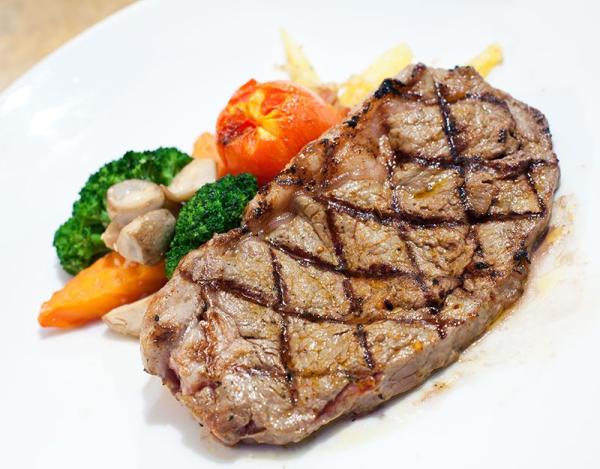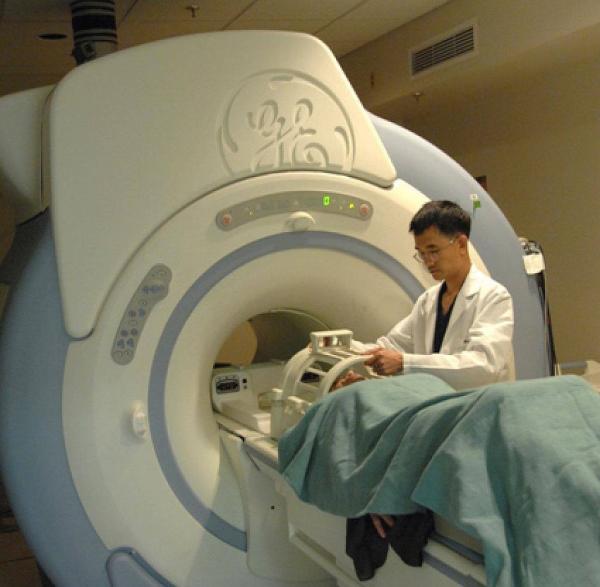Ketogenic Diet May Soothe Alcohol Withdrawal
Human and Animal Studies Point to New Treatment Strategy

A carbohydrate-restricting ketogenic diet may help ease the symptoms of alcohol withdrawal, according to a new IRP study.
Interest in the low-carb ‘ketogenetic’ diet has exploded in recent years, with legions of enthusiasts jumping on the bandwagon. The popular dietary regimen has even caught the attention of scientists seeking new treatments for an array of health conditions. For instance, a recent IRP study suggests that a ketogenic diet might make it easier for people with alcohol use disorder to stop drinking.1
In people who eat plenty of carbohydrate-rich foods like grains and fruits, the brain runs on the sugar, called glucose, produced when the digestive system breaks down those carbohydrates. However, ketogenic diets include so few carbohydrates that the liver must start making molecules called ketone bodies to supply the brain with energy.
Brain cells can also convert acetate, produced when the liver breaks down alcohol, into energy through the same processes they use to burn ketone bodies for fuel. In fact, in people who habitually consume large amounts of alcohol, brain cells switch to running primarily on acetate, shunning glucose like a picky toddler confronted with a plate of vegetables. This poses a problem because brain cells cannot immediately resume running on glucose when people stop drinking and cut off the supply of acetate.

Alcohol withdrawal commonly involves symptoms like headache, nausea, anxiety, and difficulty sleeping, but in severe cases can cause extreme distress and dangerous seizures.
“In the early stages of alcohol withdrawal, patients’ brains have very low uptake of glucose — the levels are equivalent to what you see in patients with mild to moderate Alzheimer’s dementia,” explains IRP senior investigator Nora Volkow, M.D., the new study’s senior author and the director of the NIH’s National Institute on Drug Abuse (NIDA).
Dr. Volkow’s research team theorized that putting patients with alcohol use disorder (AUD) on a ketogenic diet as they attempted to quit drinking might temper withdrawal symptoms by providing their brains with a fuel similar to the acetate they had grown accustomed to using. The scientists put 19 such individuals on a ketogenic diet for three weeks and another 14 on a diet with macronutrient proportions resembling those of the standard American diet. Liquid diets were used so the study participants would not know which diet they were on.
As expected, the ketogenic diet increased the levels of ketone bodies in participants’ blood and brains, but in addition, those on the ketogenic diet needed much lower levels of benzodiazepine medications than the control group to keep their alcohol withdrawal symptoms tolerable. Consistent with that finding, those on the ketogenic diet also reported that their withdrawal symptoms were less intense, although this result was not quite statistically significant, likely because both groups were given benzodiazepines when their symptoms became troublesome.

An MRI technician at the NIH prepares a study volunteer for a brain scan.
In addition, when the participants viewed alcohol- and food-related images while in a functional magnetic resonance imaging (fMRI) scanner that measured their brain activity, those on the ketogenic diet reported that the alcohol-related images triggered weaker feelings of ‘wanting’ compared to the control group, whereas there were no such differences for the food-related images. The fMRI experiment also showed that alcohol and food images triggered more activation in the ketogenic diet group than the control group in a brain region involved in self-control called the dorsal anterior cingulate cortex (dACC), which the scientists think may reflect a greater ability to use self-control when confronted with alcohol-related cues. Finally, the brains of patients on the ketogenic diet had lower levels of two markers of brain inflammation than the brains of control participants.
“We believe that neuroinflammation modulates neuronal activities and that these effects contribute to alcohol withdrawal symptoms,” explains IRP staff scientist Leandro Vendruscolo, Ph.D., one of the paper’s lead authors. “We think that neuroinflammation makes people feel sick, which may contribute to the negative emotional state that drives dependence.”
Additional experiments showed that rats that had been on a ketogenic diet for nine weeks before being repeatedly exposed to alcohol subsequently consumed less alcohol than rats that had been fed standard rodent chow before alcohol exposure. Interestingly, the animals that had been on the ketogenic diet were switched back to a normal diet before they were exposed to alcohol, so the results hint that the ketogenic diet might have had lasting effects on their brains that reduced alcohol consumption, though whether this is true for humans in addition to rats remains to be seen.

More From the IRP
Blog
Dietary Supplement Powers Alzheimer’s-Afflicted Neurons
Overall, the IRP study provides promising evidence that supplying the brain with an alternative energy source via a ketogenic diet can ease alcohol withdrawal. Unfortunately, a ketogenic diet can be difficult to stick with, so the study’s other lead author, Corinde Wiers, Ph.D., a former postdoctoral fellow in Dr. Volkow’s lab, is testing a ‘ketone ester’ that boosts the liver’s production of ketone bodies without the need for a ketogenic diet. Now an Assistant Professor of Psychiatry at the University of Pennsylvania’s Perelman School of Medicine, Dr. Wiers hopes this alternative method of supplying the brain with ketone bodies will be similarly effective at curtailing alcohol withdrawal symptoms but easier to implement as a treatment. It also may be possible to design a modified ketogenic diet that eases symptoms without restricting carbohydrate consumption as much as a typical ketogenic diet.
“We used a very rigorous ketogenic diet that is of course difficult to adhere to,” Dr. Volkow says. “This is the first clinical study ever to test this hypothesis, so perhaps there are ways to tailor the diet to not only get the benefit but also make it easier to follow.”
Subscribe to our weekly newsletter to stay up-to-date on the latest breakthroughs in the NIH Intramural Research Program.
References:
[1] Ketogenic diet reduces alcohol withdrawal symptoms in humans and alcohol intake in rodents. Wiers CE, Vendruscolo LF, van der Veen J, Manza P, Shokri-Ehsan Shokri-Kojori E, Kroll DS, Feldman DE, McPherson KL, Biesecker CL, Zhang R, Herman K, Elvig SK, Vendruscolo JCM, Turner SA, Yang S, Schwandt M, Tomasi D, Cervenka MC, Fink-Jensen A, Benveniste H, Diazgranados N, Wang G, Koob GF, Volkow ND. Sci Adv. 2021 Apr 9;7(15):eabf6780. doi: 10.1126/sciadv.abf6780.
Related Blog Posts
This page was last updated on Tuesday, January 30, 2024
